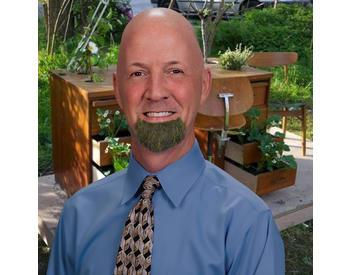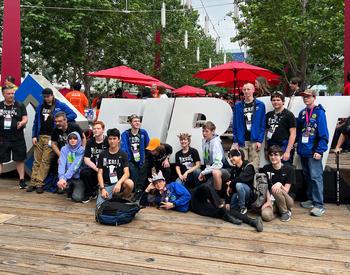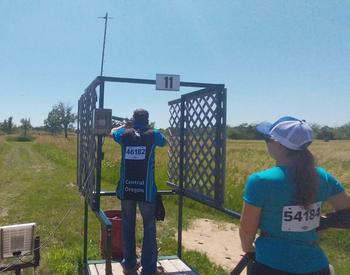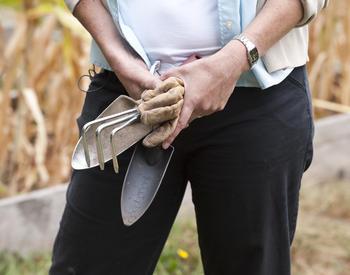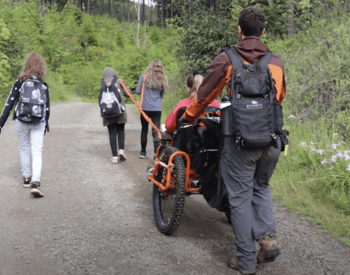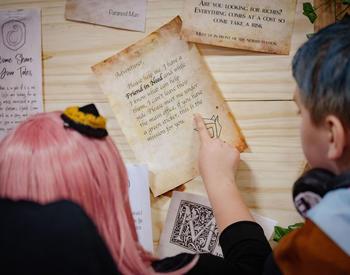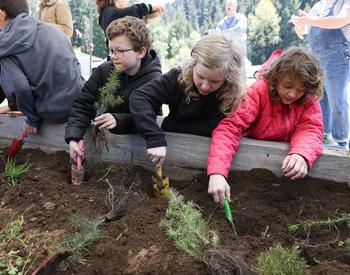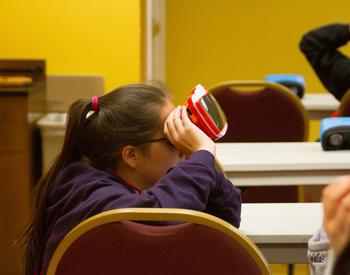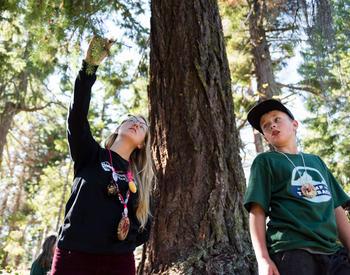BETHANY, Ore. – This past April, the Mechanical Mages traveled to Houston for the first time to compete in the FIRST Championship, an international robotics competition organized by the FIRST Tech Challenge that draws hundreds of teams from around the world.
The 13-member robotics team, affiliated with the Oregon State University Extension Service 4-H Youth Development Program, made it to the championship not only through their skills in building, programming and driving a robot. They also had to give presentations to judges, network with other teams and teach younger students.
Sameer Ruiwale, the team’s founder and head coach, started a First Lego robotics team with his eldest son, Sid, and some of his son’s friends when Sid was in elementary school. By 2022, Sid was ready for a higher level of competition. Sameer Ruiwale chose FIRST Tech Challenge over other robotics competitions because it placed such a high value on community outreach.
The elder Ruiwale recruited more than a dozen middle-schoolers in the area to join the new team. They built their first robot. They began competing in Portland’s Rose City League. And Sameer Ruiwale realized that his team needed the backing of a larger organization.
Joining 4-H
After OSU Extension in Washington County accepted his application to charter the Mechanical Mages as a 4-H club in 2023, Ruiwale and other parent organizers attended official trainings to learn about 4-H’s mission and volunteer guidelines.
“This is an expensive program,” Ruiwale said. “Enrolling with 4-H was a great opportunity to spread the program, connect with more people, and seek out sponsors and funding because of 4-H’s nonprofit status.”
4-H is the largest out-of-school youth program in the United States. There are more than 6 million 4-H members nationwide, and thousands of young people participate in Oregon 4-H each year.
4-H in Washington County sponsors three community-based high-school robotics teams, said Allen Taggart, assistant professor of practice at OSU Extension and the 4-H coordinator for the county. Local interest in robotics is high, Taggart said, because of tech employers like Tektronix, which is headquartered there and Intel, whose campus in Hillsboro is the company’s largest in the world.
The fit between 4-H and robotics is a good one, Taggart said.
“In 4-H we’re all about project-based learning,” he said. “FIRST Tech Challenge gives students that taste of competition, but a lot of learning outcomes come from it.”
Building a winning robot
Each September, FIRST, the organization behind the global robotics competition, announces the challenges this year’s robots must master. For the 2023-24 year, the competition required robots to pick up hexagonal pucks in one corner of the 12-by-12-foot playing field, then deposit the pucks on a sloped board on the opposite side of the field. To earn bonus points, the teams could design their robot so it could do pull-ups on a horizontal bar and launch paper airplanes.
As if those skills weren’t complicated enough, the first 30 seconds of each 2½ -minute meet are “autonomous,” meaning the teams must pre-program the robot to complete its moves without human assistance. The robot also has to zip around the playing field at the same time as three other robots: one operated by a collaborating team, the other two by a competing alliance.
The moment the challenges were announced this fall, robotics teams around the world set to work. The Mechanical Mages began gathering in Ruiwale’s garage several times a week, mentored by Ruiwale and co-coach Ankit Shah. “Mage” is a synonym for magician and the team members wear wizard hats.
“When we started in eighth grade, that was all about experimentation: learning how the robots work, how the competitions operate, all the lingo,” said Krrish Ravuri, now in 10th grade. “From there, we've been building up our skills.”
“One of the big things we did this year was to split the team into different groups,” said Shreyes Injeti, another 10th grader. “We had a CAD [computer-aided design] team, a ‘build’ team, a software programming team and an outreach team.”
FIRST encourages learning and sharing with other teams, so the Mechanical Mages organized scrimmages with other teams in the Portland-area Rose City League to test its machine’s performance and see how other robots were built. Then they revised and programmed some more.
“A robot is never done,” Ravuri said.
A breakthrough year
As the Mechanical Mages refined their cube-shaped robot, which can vacuum up the plastic pieces and speed along in eight different directions, its outreach team organized tours of tech companies and educational events, including staffing the 4-H booth at the Washington County Fair.
At the FIRST Tech Challenge’s Oregon state competition on March 9-10, the Mages’ hard work paid off. They captained the winning alliance in the final contest, earning their first trip to the World Championships in Houston. With one month to prepare, the team doubled down on their efforts. They sometimes worked until midnight, scarfing down takeaway pizzas as they tweaked and plotted.
Competing on the world stage
The Mechanical Mages arrived in Houston with their robot – named “The Prowler” – as well as large exhibition banners, team merchandise and business cards to display for peers and judges.
The team spent four 12-hour days at the George R. Brown Convention Center. They gave speeches to the judges about their robot and their outreach work. They talked with hundreds of teams.
In the end, the Mages won seven out of the 10 matches they played in their division. Although they didn’t make the finals, they cheered on the teams that beat them.
“The main thing about Worlds is obviously the competition, but it's also the exposure to really consistent and good teams who are always in the top five globally,” said Prathamesh Kulkarni, a ninth-grade Mage.
Planning for next year
The team returned home from Texas exhausted and exhilarated. They spent one week catching up on tests and homework before reconvening to plan out 2024-25.
“They were all ready to go,” Sameer Ruiwale said after the debrief. “I could see that fire.”
Even as they wait for September’s announcement to start building the next Prowler, the Mages are planning to repeat one of their favorite fundraising activities from last summer: teaching four-day robotics summer camps to elementary-school kids at the OSU Extension office in Beaverton. For details, check the Mechanical Mages’ website or the events page of Washington County’s 4-H site.
“Younger kids look at the robot these high school students have built, and they can’t believe it,” Sameer Ruiwale said. “They ask, ‘This is what you put together?’
“And these guys say, ‘You can do that, too.’”





